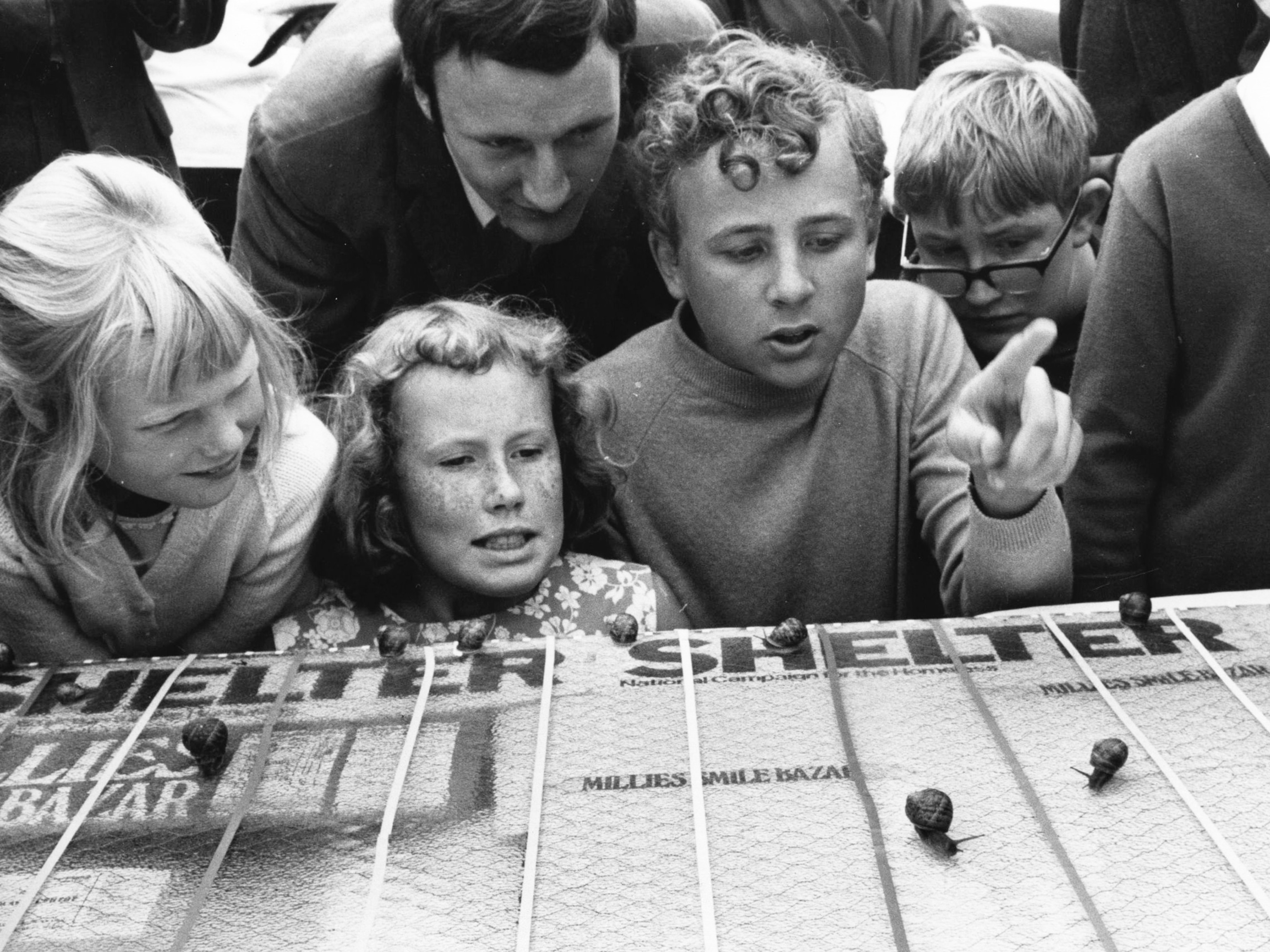
Snails Race for Glory, Lettuce
This Saturday, the world’s fastest snail will be crowned.
Neil Riseborough, the "Snail Master" of the 2013 World Snail Racing Championships, takes his sport seriously.
"We're a clean sport, unlike sprinting worldwide," he says. "There are people who will try and bend the rules—but we scrutinize." Sorry, giant African land snails. The Snail Master says you're too big to race.
Riseborough and his wife ("my Snail Mistress") reside in Congham, Norfolk, home of the biggest snail racing competition in the world for 45 years. Created by Tom Elwes, whom Riseborough describes as "an eccentric farmer," the event was originally started as a fundraiser for the local church. Compare that to last year, when over 200 snail owners representing nine different countries flocked to the countryside.
Riseborough took on the responsibilities of presiding over the event 12 years ago. He has become one of the premiere snail breeders, with over 2,000 currently roaming his farm. His process for finding a competitor each year is a mix of science and behavioral surveillance.
For the Snail Master, the simplistic process of finding and training a speedy gastropod is the appeal of the sport. "You go out into your garden, get half a dozen snails, put them on a wet handkerchief in the middle of your kitchen table and see which snails go the fastest," he says. The next step is a strict diet of lollo rosso lettuce coupled with a daily workout regimen. Snails use their muscular "foot" to create a wavelike motion that propels them forward. A layer of mucus lubricates the process and forms a suction when they travel up vertical planes. So Riseborough trains his snails on tall, French windows, a harder workout than the world championship race.
The snails compete on a 13-inch (33-centimeter) surface covered in cotton cloth that's more arena than track. The racers are placed at a center circle and, when the command is given—"Ready, Steady, Slow!"—they're let loose toward the finish line. The average speed of a snail clocks in at around 0.03 mph, although a snail named Archie went nearly double that in 1995, setting the world record time at 2 minutes and 20 seconds. The 2012 winner, brought to the championship by a 5-year-old, took home the top prize with a time of 3 minutes and 20 seconds.
The novelty of snail racing has been picked up across the globe, with the U.K. being its largest supporter. There are the Grand Championships in Snailwell, the Cambridgeshire Conker in Cambridgeshire, and the Guinness Gastropod Championship in London. Still, Riseborough proclaims his World Snail Racing Championships to be the pinnacle of the sport. He goes to great lengths to make the event perfect. The biggest threat for this year's event, scheduled for Saturday, July 20? Heat. "The weather has been so dry," says Riseborough. "We've had Californian weather. Heat wave of 30 degrees [Celsius]." Nonetheless, the race will go on—however long it takes.